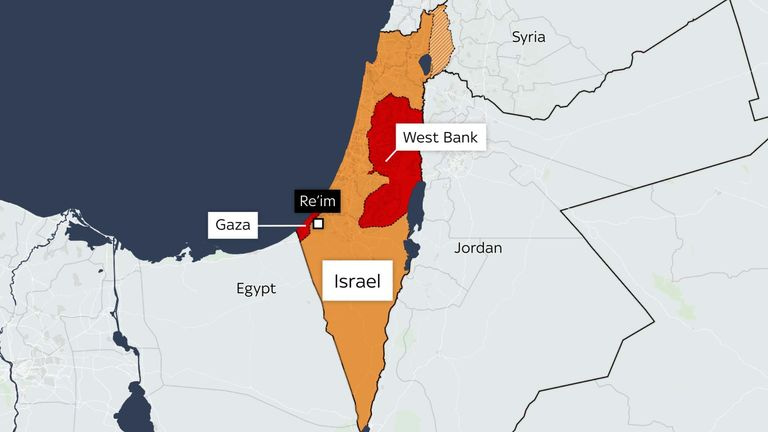The recent flare-up between Israel and Hamas has not only reignited geopolitical tensions but has also sent ripples through the financial landscape. Traditionally, armed conflicts have been known to jolt financial markets, inducing a myriad of reactions from investors and regulators alike. Let's look into the historical impact of war on financial markets, examine the repercussions of the ongoing Israel-Hamas conflict on both traditional and cryptocurrency markets, and shed light on the evolving narrative of war-time economic dynamics in the digital age.
War has often spelled uncertainty for stock markets, leading to immediate sell-offs and long-term bear markets. For instance, the onset of World War II saw stock markets plummet, only to recover and rally in the post-war era. The Vietnam War and Gulf Wars also echoed similar market tremors, albeit with varying degrees of impact. War's influence extends to commodity markets, most notably oil and gold. Conflicts in oil-rich regions typically send oil prices soaring, while gold, a traditional safe-haven asset, often sees increased demand during times of geopolitical unrest. The recent Israel and Hamas conflict, though not a major driver, has also nudged commodity markets. Amidst war, fiat currencies can experience volatility. Countries embroiled in conflict might see their currency values dip due to decreased investor confidence and economic instability. Exchange rates fluctuate, impacting international trade and the global economy at large.
Israel And Hamas: The Financial Ripple Effect
The surprise attacks and subsequent skirmishes have left investors scurrying to de-risk, contributing to a downturn in stock markets. The global financial scene has felt the tremors, reflecting the uneasy alliance between geopolitical stability and market confidence. While not a major oil-producing region, the conflict has still managed to stir commodity markets slightly, serving as a reminder of the intricate web that ties geopolitical events to financial markets. The recent conflict has yet to significantly impact currency valuations, but the situation remains fluid, with potential ramifications on the horizon should hostilities escalate further.
The cryptocurrency market, too, reacted to the Israel and Hamas conflict, albeit with a lesser degree of volatility compared to traditional markets. While Bitcoin held steady, a dip was observed in the broader crypto market, showcasing the nascent market's relative resilience. The conflict spotlighted cryptocurrencies' role in modern warfare, with Hamas seeing a surge in Bitcoin donations. This unveils a new dimension where cryptocurrencies facilitate financial transactions amidst geopolitical tensions. Israeli authorities' actions to seize and freeze Hamas-linked cryptocurrency accounts depict a proactive regulatory stance towards mitigating crypto's misuse during conflicts.
The relative steadiness of the cryptocurrency market amidst geopolitical tensions underscores its potential as a resilient financial instrument, albeit not entirely immune to war's financial fallout. The surge in crypto donations to Hamas underscores cryptocurrencies' emerging role in modern conflicts, potentially reshaping war-time financial dynamics.
The Israel and Hamas conflict has cast light on the complex interplay between geopolitical conflicts and financial markets. Whether traditional or digital, markets reflect the broader socio-political narratives, adapting and evolving with the unfolding dynamics of war. The comparative steadiness of cryptocurrency markets hints at a new chapter in wartime finance, opening avenues for further exploration and analysis in the intertwined realms of geopolitics and finance.
How Blockchain Technology Can Help

Blockchain and cryptocurrency technologies have the potential to offer solutions or alleviations in conflict scenarios like the one between Israel and Hamas. One key aspect is transparency. Blockchain's immutable and transparent nature can provide a platform for international aid tracking, ensuring that the help reaches the intended recipients without any misappropriation or bureaucratic hurdles. This can create a trust layer among parties who traditionally might not trust each other, including nations, organizations, and individuals.
Moreover, cryptocurrencies can facilitate quicker and more efficient cross-border transactions compared to traditional financial systems. In conflict zones, this can be a boon for providing humanitarian aid swiftly. It bypasses the conventional banking system, which might be sluggish or even non-functional in such areas. The reduced transaction fees associated with cryptocurrencies could also mean that more of the aid reaches those in need, rather than being spent on administrative costs.
It's important to note the double-edged sword nature of cryptocurrencies. On one side, they can speed up humanitarian aid; on the other, they can also be used for funding militant activities, as seen with Hamas receiving donations in Bitcoin. This emphasizes the need for a robust regulatory framework to ensure that cryptocurrencies are used in a constructive and legal manner, minimizing misuse while maximizing benefits.
Blockchain can also be utilized to create tamper-proof voting systems, potentially leading to more democratic processes and reducing the chances of conflicts arising from disputed elections or political discontent. This technology could foster a new level of confidence in electoral processes, which is often a flashpoint in geopolitical conflicts.
Smart contracts on blockchain platforms can automate many legal and financial processes, reducing the scope of disputes and providing a clear, immutable record of agreements and transactions. This could be particularly useful in managing and verifying international agreements, treaties, or ceasefires in a transparent and unalterable manner, contributing to conflict resolution.
By creating decentralized identities and securing critical personal and institutional data on the blockchain, a level of security and privacy can be ensured which is paramount in conflict zones to protect individuals and sensitive information. This aspect of blockchain can provide a shield against data manipulations, identity thefts, and other cyber-attacks common in times of geopolitical unrest.
The potential of blockchain and cryptocurrency technologies in mitigating conflict-related challenges is immense. However, it requires a globally coordinated effort, encompassing regulatory frameworks and technological advancements, to truly harness these digital tools for peace and humanitarian causes.
Matt is the founder of TechMalak. When he's not buried face-deep in the crypto charts you can find him tinkering with the latest tech gadgets and A. I tools. He's a crypto investor and entrepreneur. He uses a mixture of A.I and human thought and input into all his articles on TechMalak, further merging man with machine.





